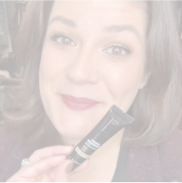Stress can have a severe domino effect on your health, wellbeing, and daily schedule. In some cases, stress can even become debilitating. When we let stress take over, it can prevent us from reaching our full potential, and from actually enjoying the people and things that surround us.
By adulthood, most people develop certain coping mechanisms for stress. But not all coping mechanisms are created equal. Some coping mechanisms might just delay the stress, some might just bottle it up, and some might actually have negative effects on those around you.
How healthy are your coping mechanisms? Do you find that the stress is actually subdued, or just pushed aside? Are you trying to make yourself feel better at someone else’s expense?
Stress has such a negative connotation that oftentimes we use negative management styles to address it. These can include overeating, excessive drinking, shirking other responsibilities, or ‘retail therapy’. To make ourselves feel better, we wrap it all up in a big bow and call it “self-care.” But is it self-care? Do you feel more capable of handling stress afterward? Perhaps not. And the most important thing to remember is you are not alone.
In this article, we will go over some of our favorite tips for managing stress that are healthy and user-friendly.
5 Tips for Managing Stress:
Take a time-out: Time-outs can be a great way to stop, breathe, and think. When your brain is on overdrive, it can be difficult to think clearly, and therefore even harder to actually get anything done. Give yourself a 5-minute break to pause. Even if you are in a rush, you will be more productive and execute your task with greater ease after taking a few minutes to give yourself space.
Exercise: Sometimes exercise is the best way to let off a little bit of steam. Stress can drum up some chaotic energy, and directing that energy towards an activity that will get your body up and moving is a great way to recenter yourself. To manage stress on a regular basis, make exercising a part of your daily schedule. The regular release of endorphins you receive while exercising will help manage your stress as well.
Manage your diet: Drinking plenty of water throughout your day and eating a balanced diet will help regulate your body, and optimize your mind for productivity. Those of us who turn to wine and ice cream as a means of coping will oftentimes find more stress on the flip side of that decision. Changing these habits can be difficult, but implementing these tips by way of tiny habits will help turn them into regular practices. Start small and notice how it can make a difference.
Sleep: Sleep can feel so elusive, especially when we are stressed. When you need sleep most and can’t seem to get enough of it, that can also increase your stress levels. In many ways, sleep and stress go hand in hand. That’s because sleep is an ultimate healer of all things regarding the body and mind. If you find yourself losing sleep because of stress, don’t wait until lights out to start trying to reduce your stress. Give yourself time in the evening to decompress, and prepare your body to rest. This can include screen-less activities like reading, coloring or painting, journaling, taking a warm bath, or just practicing deep breathing techniques.
Recognize triggers: Once you’ve taken some time to evaluate your stress, you might begin to notice trigger patterns. Is there something that will repeatedly set you off? Is your stress tied to a specific action, person, or behavior? Take note of what stresses you out the most, and try to ask yourself: Why? When you can get deeper into the cause of the stress, you’ll be more capable of reducing these triggers.
The best thing you can do for your stress is to acknowledge it. When attempting to avoid or suppress your stress, you’re not setting future-you up for success. Your stress is valid and deserves to be addressed with healthy habits. Try these tips for managing stress today, and let us know what you think. If your stress becomes too difficult to manage on your own, seek assistance from your doctor.

